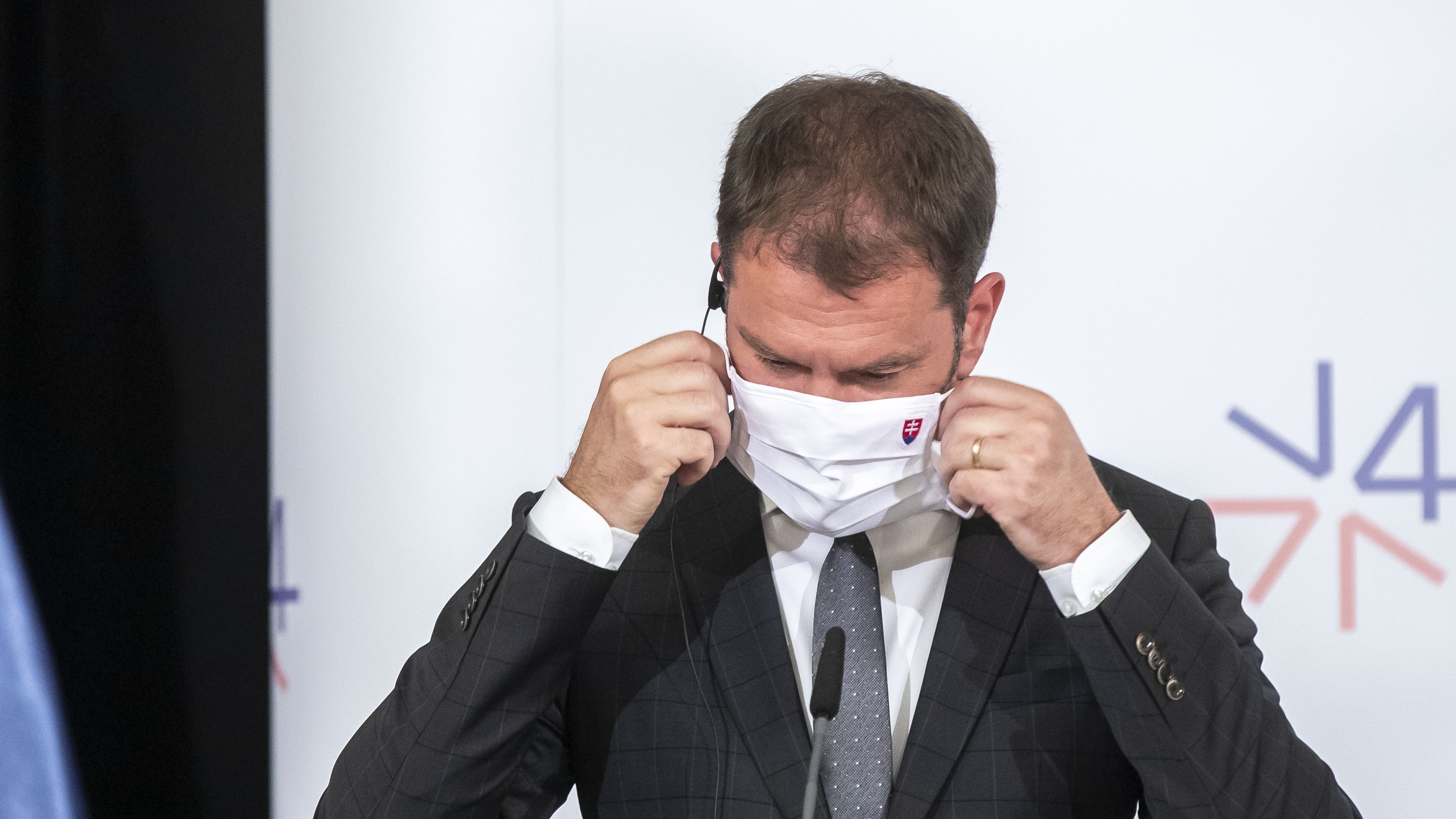Slovak PM resigns amid government feud over Russian vaccine purchase
EU’s Covid jabs crisis claims first major political scalp

A free daily email with the biggest news stories of the day – and the best features from TheWeek.com
You are now subscribed
Your newsletter sign-up was successful
Slovak Prime Minister Igor Matovic has stepped down as leader of the country’s ruling coalition following a month of political turmoil triggered by his decision to buy Russian-made Covid vaccines.
Amid an escalating feud within his government over the purchase, which was made without his coalition partners’ knowledge, Matovic has announced that he will swap roles with his finance minister, Eduard Heger.
Speaking in the capital Bratislava on Palm Sunday, Matovic described his resignation as PM “in religious terms”, Politico reports. “On the eve of holy week, which we celebrate as a symbol of suffering, sacrifice and forgiveness, I decided to make a gesture of forgiveness towards the people who politically demanded my resignation as prime minister,” said the former business, leader of The Ordinary People and Independent Personalities party (OLaNO).
The Week
Escape your echo chamber. Get the facts behind the news, plus analysis from multiple perspectives.

Sign up for The Week's Free Newsletters
From our morning news briefing to a weekly Good News Newsletter, get the best of The Week delivered directly to your inbox.
From our morning news briefing to a weekly Good News Newsletter, get the best of The Week delivered directly to your inbox.
An internal war has been raging in the four-party governing coalition since it emerged earlier this month that Matovic had purchased two million doses of the Sputnik V vaccine, which has not yet been given regulatory approval by the European Medicines Agency.
Two of the ruling parties - For the People and Freedom and Solidarity - said they would “leave the government unless there was a cabinet reshuffle and Matovic stepped down”, the news site adds.
Six ministers, including the health minister, have since quit his 16-member cabinet.
Matovic “defended the purchase” by arguing that it would speed up Slovakia’s Covid vaccination programme, which has been hobbled by major setbacks in the EU’s joint procurement scheme, says Deutsche Welle.
A free daily email with the biggest news stories of the day – and the best features from TheWeek.com
But that reasoning failed to prevent him from becoming the first major political scalp claimed by the EU vaccine shortages crisis. Matovic’s critics had piled on the pressure by also accusing him of “poor communication and political missteps”, the German broadcaster adds.
Slovakia’s health system is struggling to cope as the country is hit by a third wave of coronavirus, with 9,496 deaths and 357,910 Covid cases among the 5.4 million-strong population to date, according to latest figures from John Hopkins University.
It is the second EU member state to agree to the purchase of the Sputnik vaccine, after Hungary became one of the first nations to break from the bloc’s joint scheme by agreeing a deal in late February to buy doses of the Russian jab.
Joe Evans is the world news editor at TheWeek.co.uk. He joined the team in 2019 and held roles including deputy news editor and acting news editor before moving into his current position in early 2021. He is a regular panellist on The Week Unwrapped podcast, discussing politics and foreign affairs.
Before joining The Week, he worked as a freelance journalist covering the UK and Ireland for German newspapers and magazines. A series of features on Brexit and the Irish border got him nominated for the Hostwriter Prize in 2019. Prior to settling down in London, he lived and worked in Cambodia, where he ran communications for a non-governmental organisation and worked as a journalist covering Southeast Asia. He has a master’s degree in journalism from City, University of London, and before that studied English Literature at the University of Manchester.
-
 The EU’s war on fast fashion
The EU’s war on fast fashionIn the Spotlight Bloc launches investigation into Shein over sale of weapons and ‘childlike’ sex dolls, alongside efforts to tax e-commerce giants and combat textile waste
-
 How to Get to Heaven from Belfast: a ‘highly entertaining ride’
How to Get to Heaven from Belfast: a ‘highly entertaining ride’The Week Recommends Mystery-comedy from the creator of Derry Girls should be ‘your new binge-watch’
-
 The 8 best TV shows of the 1960s
The 8 best TV shows of the 1960sThe standout shows of this decade take viewers from outer space to the Wild West
-
 A Nipah virus outbreak in India has brought back Covid-era surveillance
A Nipah virus outbreak in India has brought back Covid-era surveillanceUnder the radar The disease can spread through animals and humans
-
 Trump HHS slashes advised child vaccinations
Trump HHS slashes advised child vaccinationsSpeed Read In a widely condemned move, the CDC will now recommend that children get vaccinated against 11 communicable diseases, not 17
-
 A fentanyl vaccine may be on the horizon
A fentanyl vaccine may be on the horizonUnder the radar Taking a serious jab at the opioid epidemic
-
 Health: Will Kennedy dismantle U.S. immunization policy?
Health: Will Kennedy dismantle U.S. immunization policy?Feature ‘America’s vaccine playbook is being rewritten by people who don’t believe in them’
-
 How dangerous is the ‘K’ strain super-flu?
How dangerous is the ‘K’ strain super-flu?The Explainer Surge in cases of new variant H3N2 flu in UK and around the world
-
 Vaccine critic quietly named CDC’s No. 2 official
Vaccine critic quietly named CDC’s No. 2 officialSpeed Read Dr. Ralph Abraham joins another prominent vaccine critic, HHS Secretary Robert F. Kennedy Jr.
-
 This flu season could be worse than usual
This flu season could be worse than usualIn the spotlight A new subvariant is infecting several countries
-
 Covid-19 mRNA vaccines could help fight cancer
Covid-19 mRNA vaccines could help fight cancerUnder the radar They boost the immune system